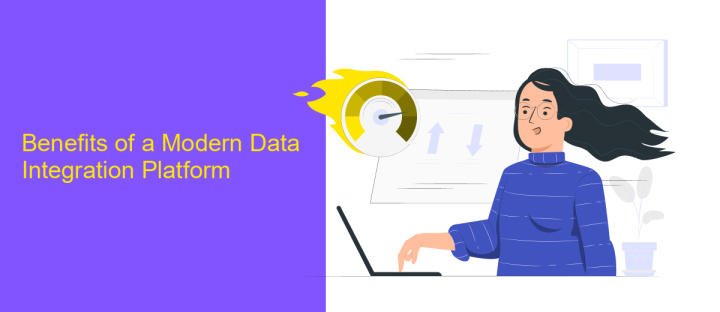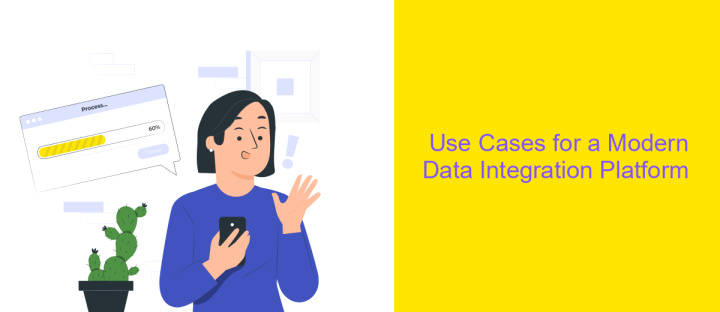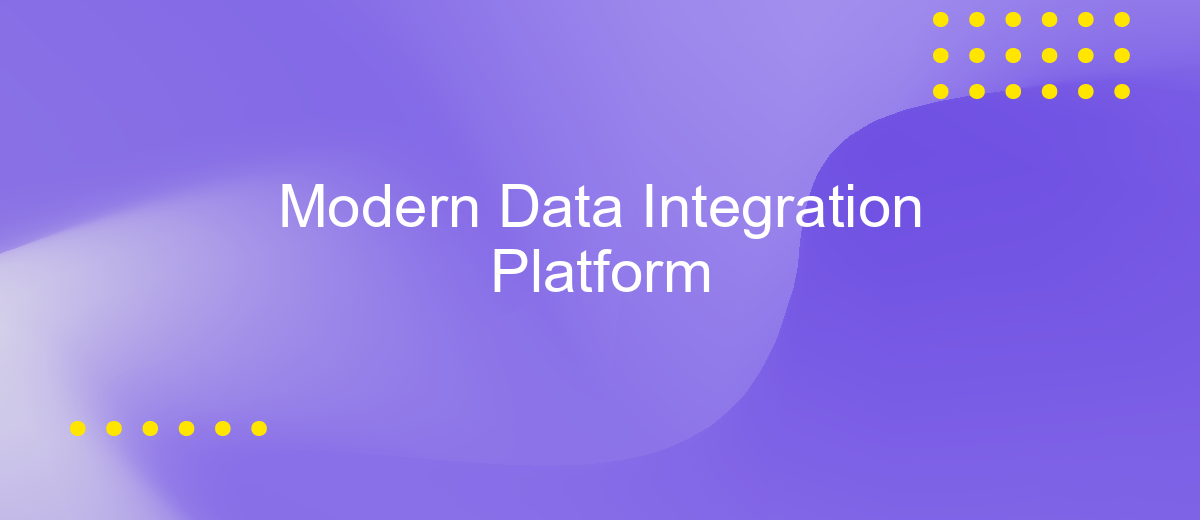Modern Data Integration Platform
In today's data-driven world, businesses require seamless and efficient ways to integrate vast amounts of information from diverse sources. Modern Data Integration Platforms provide a comprehensive solution, enabling organizations to unify, manage, and analyze data with unprecedented ease and accuracy. This article explores the key features, benefits, and technological advancements that make these platforms indispensable for contemporary enterprises.
Introduction to Modern Data Integration Platform
In today's fast-paced digital landscape, organizations are inundated with vast amounts of data from diverse sources. To harness the full potential of this data, modern data integration platforms have emerged as essential tools. These platforms streamline the process of collecting, transforming, and consolidating data, enabling businesses to make data-driven decisions efficiently.
- Seamless integration with multiple data sources
- Real-time data processing and analytics
- Scalability to handle large volumes of data
- Advanced security and compliance features
- User-friendly interfaces and automation capabilities
By leveraging a modern data integration platform, organizations can break down data silos and ensure that accurate, up-to-date information is readily accessible across the enterprise. This not only enhances operational efficiency but also empowers stakeholders with the insights needed to drive innovation and maintain a competitive edge in the market.
Benefits of a Modern Data Integration Platform

A modern data integration platform offers a multitude of benefits that streamline data management and enhance operational efficiency. One of the primary advantages is the ability to seamlessly integrate data from various sources, ensuring that all relevant information is accessible in real-time. This leads to more informed decision-making and improved business outcomes. Additionally, such platforms often come with robust security features, safeguarding sensitive data and ensuring compliance with industry standards.
Another significant benefit is the ease of use and flexibility provided by these platforms. Tools like ApiX-Drive simplify the integration process by offering user-friendly interfaces and automated workflows, allowing businesses to connect different applications without extensive coding knowledge. This not only reduces the time and resources required for integration but also minimizes the risk of errors. Moreover, modern data integration platforms are scalable, accommodating the growing data needs of businesses and adapting to evolving technological landscapes.
Key Features of a Modern Data Integration Platform

A modern data integration platform is essential for businesses aiming to efficiently manage and utilize their data. By integrating various data sources and ensuring seamless data flow, such platforms enable organizations to make informed decisions and drive growth.
- Scalability: The platform can handle increasing amounts of data and users without compromising performance.
- Real-time Processing: It supports real-time data integration, ensuring up-to-date information is always available.
- Data Quality Management: Features like data cleansing and validation ensure the accuracy and reliability of integrated data.
- Security and Compliance: Robust security measures and compliance with industry standards protect sensitive data.
- Interoperability: The platform can connect with a wide range of data sources and systems, promoting flexibility.
Incorporating these key features, a modern data integration platform not only enhances operational efficiency but also provides a solid foundation for advanced analytics and business intelligence. As a result, businesses can gain deeper insights and maintain a competitive edge in today's data-driven world.
Use Cases for a Modern Data Integration Platform

A modern data integration platform is essential for organizations looking to streamline their data processes and improve decision-making. Such platforms enable seamless data flow between various systems, ensuring that information is accessible and actionable in real-time.
Businesses across different industries can leverage these platforms to achieve a variety of objectives. From improving customer experiences to optimizing operational efficiencies, the applications are vast and impactful.
- Real-time analytics for better decision-making
- Customer 360 views for enhanced personalization
- Data synchronization across multiple systems
- Regulatory compliance and data governance
- Streamlined ETL processes for faster data processing
Implementing a modern data integration platform can significantly reduce the complexity and cost associated with managing disparate data sources. As a result, organizations can focus more on deriving insights and less on data wrangling, ultimately driving innovation and growth.


Choosing the Right Modern Data Integration Platform
Choosing the right modern data integration platform is crucial for ensuring seamless data flow and real-time analytics. When evaluating options, consider the platform's ability to handle diverse data sources and formats. Look for features such as scalability, ease of use, and robust security measures. Additionally, the platform should offer intuitive interfaces and automated workflows to reduce the complexity of data integration processes.
One such platform to consider is ApiX-Drive, which excels in simplifying data integration. ApiX-Drive supports a wide range of applications and services, enabling businesses to connect disparate systems effortlessly. Its user-friendly interface and pre-built connectors allow for quick setup and minimal coding, making it accessible even for non-technical users. Furthermore, ApiX-Drive's real-time synchronization ensures that data is always up-to-date, facilitating better decision-making and operational efficiency.
FAQ
What is a Modern Data Integration Platform?
How does a Modern Data Integration Platform improve data quality?
What are the key features to look for in a Modern Data Integration Platform?
How can businesses automate data integration processes?
Why is scalability important in a Modern Data Integration Platform?
Time is the most valuable resource for business today. Almost half of it is wasted on routine tasks. Your employees are constantly forced to perform monotonous tasks that are difficult to classify as important and specialized. You can leave everything as it is by hiring additional employees, or you can automate most of the business processes using the ApiX-Drive online connector to get rid of unnecessary time and money expenses once and for all. The choice is yours!

